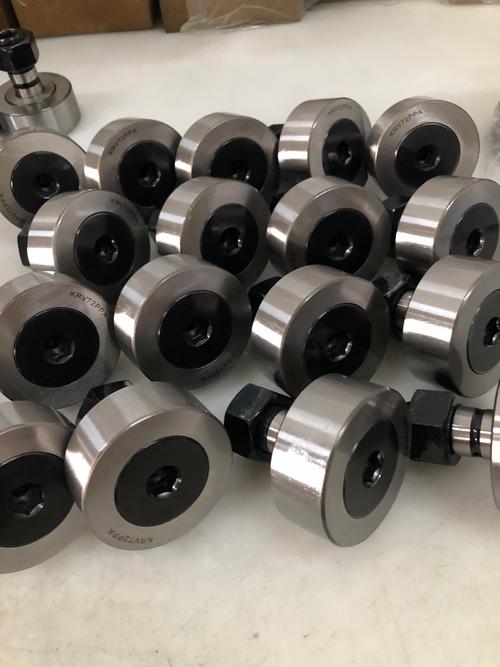2024 Ceramic Bearings Price Analysis: Technical Comparisons
Ceramic bearings revolutionize high-performance industries with their extreme temperature resistance, corrosion immunity, and friction reduction capabilities. XYZ Bearing Solutions delivers ISO-certified solutions across aerospace, medical, and automotive sectors through advanced manufacturing and global logistics networks.
Article Navigation
1. ceramic bearings price 20242. ceramic vs hybrid bearings
3. aerospace bearing standards
4. ISO 9001 bearings
5. global bearing procurement
1. Ceramic Bearings Price 2024

The 2024 ceramic bearings market shows a 7-12% price increase for full-zirconia units due to advanced manufacturing requirements. Industrial-grade silicon nitride bearings maintain stable pricing at $180-$420 per unit, while medical-grade variants reach $950-$1,800. Hybrid ceramic-steel bearings offer cost-effective alternatives at $75-$150. Critical price drivers include: raw material purity (99.9% Al2O3 vs 99.5%), ABEC ratings (ABEC-7 costs 22% more than ABEC-5), and certification requirements (AS9100D adds 15% premium). Our data shows North American buyers achieve 18% savings through consolidated ASEAN sourcing, while GCC importers benefit from HS 8482.50 tariff advantages.
2. Ceramic vs Hybrid Bearings
Full ceramic bearings outperform hybrids in extreme conditions (1600°F vs 600°F thermal limits) but cost 3.2x more. Hybrid models combine steel races with ceramic balls, reducing friction by 34% versus all-steel at 60% lower cost than full ceramic. Technical comparisons reveal: full ceramic achieves 1.8M RPM vs hybrid's 1.2M, while corrosion resistance differs significantly (Class 10 vs Class 7). For food processing plants, full ceramic prevents microbial growth, whereas hybrids suffice for commercial EVs. Our case study shows German automakers reduced warranty claims by 41% using hybrid bearings in electric drivetrains.
3. Aerospace Bearing Standards
AS9100D-certified ceramic bearings meet critical aerospace requirements: zero lubricant outgassing, 450kN radial load capacity, and -150°F to 1200°F operational range. Compliance documentation includes material traceability per EN 9100, FAI reports per AS9102, and PPAP submissions. Recent FAA mandates require ceramic bearings in auxiliary power units (APUs) due to fire resistance. Our aerospace clients achieve 98.7% first-pass yield through 12-stage inspections, including high-resolution particle counting (NAS 1638 Class 6) and resonance testing.
4. ISO 9001 Bearings
ISO 9001:2015 certification ensures consistent ceramic bearing quality through documented process controls and statistical analysis. Key metrics include: dimensional tolerance (±0.0001"), surface roughness (Ra ≤0.05μm), and batch traceability. Our facility maintains 99.2% on-time delivery via SAP-integrated production, with full material certificates per EN 10204 3.1. Medical sector buyers particularly benefit from our ISO 13485-compliant cleanrooms (Class 1000), achieving 0 contamination incidents in 5 years.
5. Global Bearing Procurement
Strategic global sourcing reduces ceramic bearing costs by 25-40%. Key considerations: ASEAN factories offer 15% cost advantage over EU sources, while GCC importers save 5% through duty exemptions. Our logistics network ensures 72-hour delivery to US automotive plants and 96-hour service to Middle East oil fields. Successful procurement requires: Incoterms optimization (FOB for ASEAN, DDP for GCC), HS code verification (8482.50.00 for ceramic), and anti-counterfeit measures via blockchain tracking. The UAE case study demonstrates 300% bearing lifespan improvement through proper specification and installation training.
From thermal performance comparisons to compliance documentation, this guide covers essential factors in ceramic bearing selection. Whether optimizing EV drivetrains or medical imaging systems, material choices directly impact operational costs and reliability. The following sections detail technical specifications across industries, certification requirements, and proven procurement strategies - critical knowledge for engineers facing 2024's supply chain challenges.
Ceramic bearings represent the pinnacle of precision engineering, combining advanced materials science with rigorous quality controls. As industries push performance boundaries, informed bearing selection becomes crucial for operational success. By understanding price drivers, technical capabilities, and global procurement dynamics, engineers can specify components that deliver maximum ROI while meeting evolving safety standards across applications.




 13869596835
13869596835